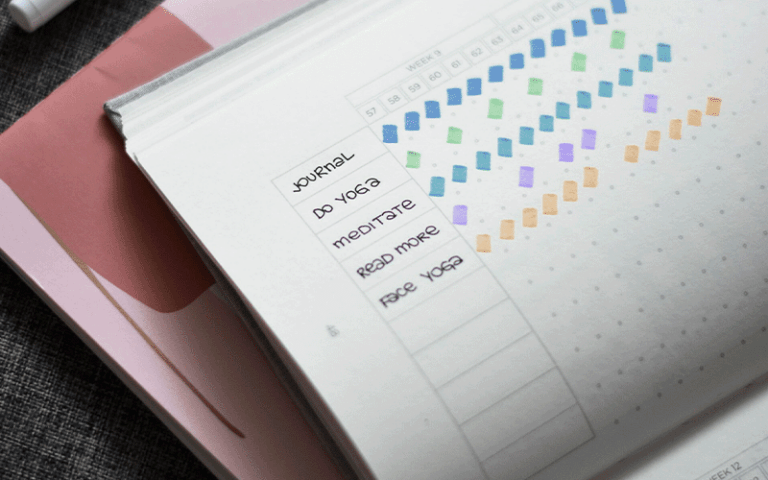Hands up if your goal is to address your gut issues in 2023 🥳🙌🏻👇🏼
Maybe you have thought about doing yet another elimination diet or cleanse…
It’s tempting…I get it!
Maybe the holidays have left you feeling bloated, uncomfortable and wanting to reach for a quick fix to stop feeling so heavy 😩
The holidays can be hard. You’re out of your normal routine, you’re eating differently, potentially drinking more alcohol and sleeping less ..and in todays day and age everyone starts a detox on Jan 1
I want to remind you that these quick fixes, elimination diets and detoxes don’t actually address the underlying reasons you’re bloated They may provide symptom relief, but they won’t fix the greater issue (YOUR GUT)
The rise of the gut microbiome and it’s relationship to health has been the subject of much hype in recent years. One thing that is clear, however, is that what we eat, and the way we eat can have a huge impact on our gut health. It is also clear that abundance is king when it comes to gut health–which is why the elimination diets only provide short term relief! That’s why it’s important to make sustainable changes that can improve your gut microbiome for life!
Although you may be temped to reach for another quick fix, let 2023 be the year that you sustainably focus on healing your gut for good–because that’s the goal, right?
Here are 12 small habits you can begin implementing today to improve your gut health.
Drink 80-100oz of water
Drinking water is one of the most important things you can do to maintain a healthy gut. It’s well established that adequate hydration can help prevent constipation, and it’s also beneficial for maintaining regular bowel movements.
In addition to reducing constipation, drinking enough water ensures that your body is able to flush out toxins and food waste efficiently—keeping the gut healthy. As an added bonus, drinking plenty of water helps keep skin glowing, teeth strong and eyes bright!
Prioritize 7-8 hours of sleep nightly
Sleep is important. It helps you stay healthy, feel better, and have more energy throughout the day. Your body needs to rest in order to recover from stress and restore cells and tissues. Getting enough sleep also improves memory and learning ability, reduces risk of heart disease and diabetes, helps control weight gain, improves mood, boosts immunity against infections such as colds and flu (1), (2) (3).
Getting quality sleep can help you feel healthier overall. You might want to improve the quality of your sleep if:
- You often wake up feeling tired
- You have trouble falling asleep
- You frequently wake up during the night or early morning hours
Eat 30 plans per week
Diversity in the gut is KEY to create a healthy, happy gut. Restricting the foods you eat, feeds the intolerances of your gut because it’s no longer used to processing foods you cut out, which only leads to more gut symptoms.
Begin incorporating more plants into your meals to keep your gut microbiome diverse, while getting adequate nutrients to fuel your body.
Chew your food to an applesauce consistency
Chew your food to an applesauce consistency.
Why? Yes, chewing your food thoroughly is good for digestion because it physically breaks down the food and allows more surface area for digestive enzymes to work on. But there are also other benefits to chewing your food well: it helps you absorb nutrients from the food, and it keeps you from overeating. When people eat quickly, they tend to swallow their food whole or in large chunks. This means that instead of being digested by all three stages of digestion (intestines, stomach and pancreas), most of the nutrients go straight through into the large intestine where they aren’t absorbed properly. On top of that, eating too much at once can cause bloating—and nobody likes bloating!
When eating slowly you naturally chew each bite thoroughly; this gives time for saliva production and increases levels in saliva containing enzymes like amylase which help break down carbohydrates into simple sugars which can be easily absorbed by our bodies
Space your meals 3-4 hours apart
- Eat small meals
- Space out your meals throughout the day
- Don’t eat until you are full, hungry, or stuffed. Just stop when you feel like it. That’s enough for now!
- Do not eat until you feel sick or about to throw up.
Simple enough but sometimes the hardest to put into action. With snacks at the ready whenever you’re working from home, you could be either over or under-eating and throwing off your blood sugar levels.
Include 20-30 grams of protein with each meal
Protein is the most important macronutrient. It helps your body build and repair muscle, which is necessary for maintaining a healthy weight and building lean muscle mass.
It’s also important to get enough protein with each meal because it gives you energy, helps you feel full longer, and helps you recover from exercise more quickly.
To make sure that you’re getting enough protein in your diet, be sure to include 20-30 grams of protein with each meal.
End your shower with cold water for 30 seconds
Shower time is a great time to reflect, and it’s also the perfect time to help your gut.
Cold water is known to be good for gut health, so try ending your shower with cold water for 30 seconds. It’ll help keep your gut and nervous system healthy and happy!
Walk for 5-10 minutes after each meal, daily
Want to strengthen your gut health? Just walk for 5-10 minutes after each meal daily!
This simple habit is one of the most effective ways to improve your gut health, and it can be done in as little as 10 minutes a day.
The key is that walking helps your body break down food properly, which in turn keeps your gut healthy and functioning at its highest potential. When you eat, your body releases enzymes that help break down the food into nutrients that can enter the bloodstream via digestion. But if you don’t move around for a few minutes after eating, those enzymes remain inactive—and so does your ability to absorb nutrients from your food!
Walking after meals isn’t just good for staving off weight gain; it’s also great for boosting mental clarity and energy levels. So next time you sit down with that lunchtime salad or bowl of soup (or even if it’s not lunchtime), take advantage of this simple trick: get up from the table after eating and go for a short walk!
Avoid blue light for 1-2 hours before bed
If you’re looking to improve your gut health, it might be time to consider avoiding blue light before bed.
Blue light, which is emitted from devices like smartphones and TVs, suppresses the production of melatonin in the body. Melatonin is a hormone that helps regulate our sleep cycle, so when we don’t produce enough of it, we can have trouble falling asleep or waking up during the night. That’s why people who work night shifts—who are often exposed to large amounts of blue light—are at higher risk for sleep disorders.
So what does this have to do with our gut? When our gut is not sleeping well enough at night, it doesn’t have the chance to rest and repair itself as much as it needs to. This can lead to poor digestion and therefore poor overall health. That’s why it’s important to avoid blue light for 1-2 hours before bedtime if you want your gastrointestinal system back on track!
Sweat daily
Sweating is one of the most important ways that your body rids itself of toxins. When we sweat, our bodies release toxins from our pores as a way to get rid of them. The more you sweat, the more toxins are released from your body.
So if you want to be healthy and feel great, don’t sweat the small stuff! Sweating it out every day will help keep your gut healthy and keep your body running smoothly.
Practice 1 nervous system regulating activity daily
The first step to a healthy gut is to ensure that your nervous system is functioning properly. The nervous system is responsible for regulating the activity of every organ in your body, including your digestive tract. Make sure you’re getting enough sunshine and exercise daily, as well as meditating on a regular basis. Your body will thank you!
These changes aren’t hard to do, and they’ll improve your digestive health.
These changes aren’t hard to do, and they’ll improve your digestive health. These 12 habits are easy to maintain, and they’ll make you feel better. I would recommend starting with incorporating 1 new habit each month, and stacking them for a true sustainable and balanced implementation of habits. You will see improvements in your digestive health over time.
These small shifts can help pave the way for a healthier lifestyle overall.
Conclusion
Hopefully, this article has helped you think about how to make some changes to your daily routine. If you’re struggling with digestive issues and want to start feeling better, these tips can be a great place to start. If you’re looking for more information on the topic of gut health and wellness, we highly recommend checking out our blog and the Love Your Gut podcast. There are lots of resources here that will help you on your journey!
Enrolments for the gutTogether program have re-opened. If your gut health is any part of you 2023 plans, I invite you to apply to join so that we can (gut) to the root of your digestive symptoms and implement sustainable changes so that we can stop your bloat for good. Click here to apply








